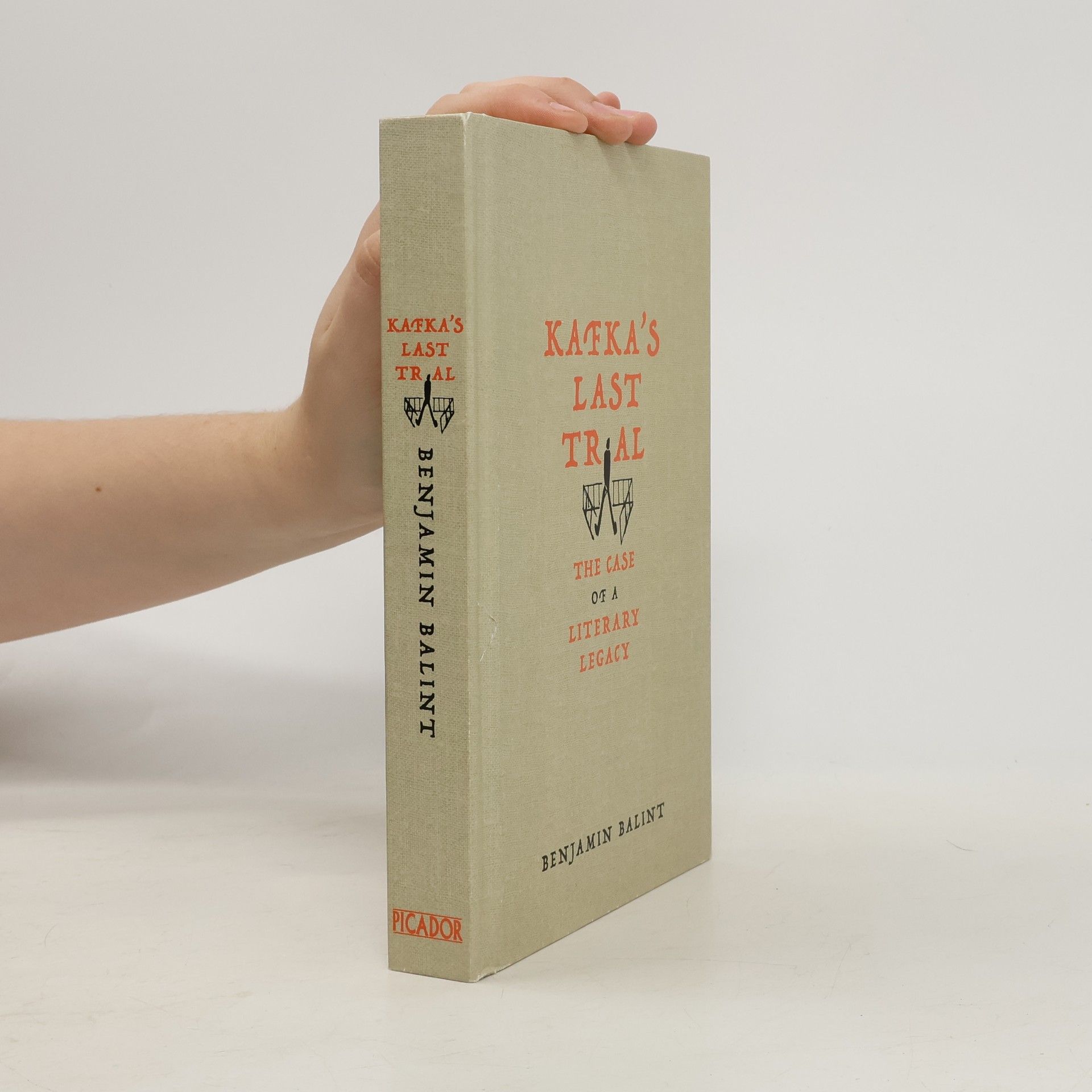Bruno Schulz's life reflects the tumultuous changes of the twentieth century, as he transitioned from an Austrian citizen to a Polish national and ultimately a Jewish victim of the Holocaust. His existence spanned multiple political regimes, including the Habsburg monarchy, the West Ukrainian People's Republic, the Second Polish Republic, the USSR, and the Third Reich, illustrating the complex interplay of identity and nationality in a time of upheaval.
Benjamin Balint Knihy




Jerusalem
- 272 stránek
- 10 hodin čtení
A captivating journey through the hidden libraries of Jerusalem, where some of the world's most enduring ideas were put into words
Kafka's Last Trial
- 304 stránek
- 11 hodin čtení
The gripping story of the legal battle over the work of perhaps the iconic writer of the twentieth century: a priceless cache of papers, an unprecedented international custody battle, and the unlikely journey of a trove of manuscripts from Prague to Palestine.
Max Brod hatte den berühmtesten Koffer der Literaturgeschichte bei sich, als er 1939 mit dem letzten Zug von Prag nach Palästina floh. Er rettete damit die Manuskripte, Notate und Zeichnungen seines Freundes Franz Kafka. Jahrzehnte später entspann sich darum ein Gerichtskrimi. Vordergründig wurde über den Nachlass von Max Brod entschieden, doch die eigentlichen Fragen waren: War Kafka vor allem ein jüdischer Autor? Ist sein Erbe in Israel richtig aufgehoben? Oder besser in jenem Land, in dessen Namen Kafkas Familie ausgelöscht wurde? Packend und anschaulich wie ein Kriminalfilm erzählt Benjamin Balint in »Kafkas letzter Prozess. Ein Nachlass und seine Geschichte« die Geschichte von Kafkas Nachleben. Mit einem neuen, zusätzlichen Kapitel von Benjamin Balint zu den Entwicklungen der jüngsten Jahre »Eine grandiose Spurensuche, die auch das Verhältnis von Kultur und deren Besitz, von Literatur, Nation und Religion beleuchtet.« Mathias Schnitzler, Berliner Zeitung